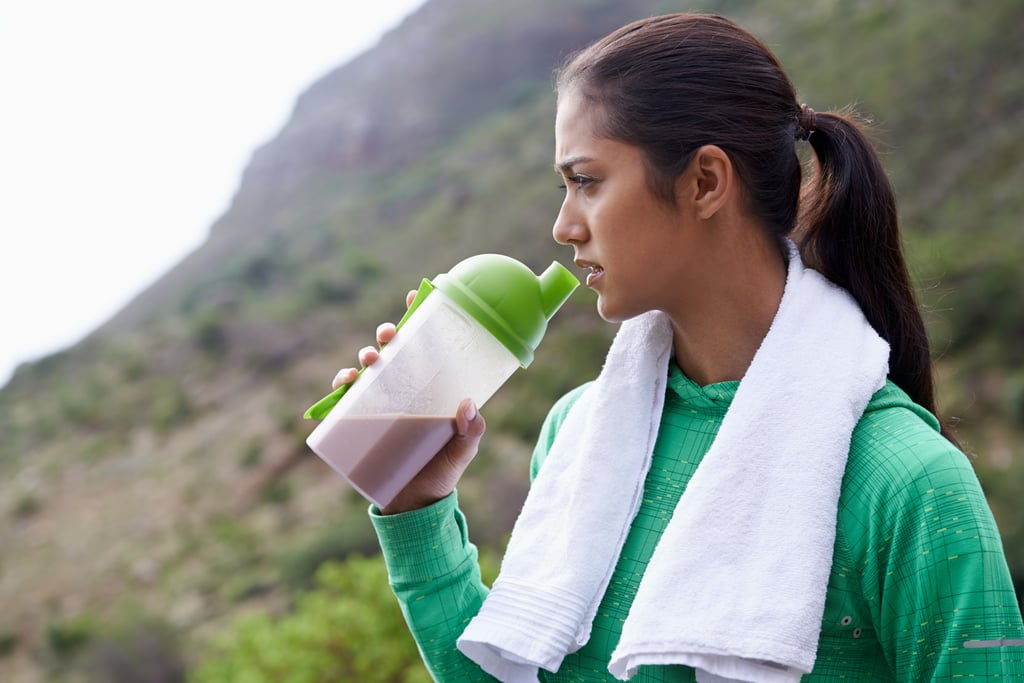If you've struggled with acne, then you've probably tried everything you can: harsh face washes, over-the-counter creams, prescription topical gels, or even oral medication. But have you thought about what you're eating? Your diet can have a major impact on your skin [1], including acne.
We spoke with board-certified dermatologist Tsippora Shainhouse [2], MD, FAAD, of the Dermatology Institute and Skin Care Centre [3], who broke down the five biggest offenders in your battle with breakouts. If you're trying to clear up your skin, you'd be best to steer clear of these foods. Of course, if you're really struggling with acne, it's best to visit your dermatologist to create a skincare regimen that works for you.
Dairy
This is probably the biggest offender people think of in foods that trigger acne. Turns out, there is some scientific research to back it up; a 2018 meta-analysis of observational studies [5] linking acne and dairy intake found a "positive relationship" between dairy, total milk, whole milk, low-fat, and skim milk consumption and acne occurrence.
"While the mechanism of action has not been elucidated, it is probably associated with the natural and added growth hormones and growth factors in the milk itself, which trigger hormonal acne flares in the skin," Dr. Shainhouse told POPSUGAR. "Most milk is sourced from lactating dairy cows, who have high levels of circulating progesterone: insulin-like growth factor and other hormones that human bodies convert into dihydrotestosterone (DHT). These hormones can send oil glands into overdrive, which can trigger acne in susceptible people."
If you've been consuming dairy regularly and experience breakouts, she recommended giving it up cold turkey for a month or two to see how that impacts your skin. Since calcium and vitamin D are important nutrients, it's also essential to supplement with them while you're dairy-free.
Sugar
"There is a theory that high-glycemic foods can increase inflammation in the body, which, in turn, can trigger acne flares in persons who are have a underlying predisposition to this type of acne," she said. "Consider cutting out sugar-rich, hyper-processed foods, like candy, cakes, and regular soda for a month or two and see if it reduces your flares."
Although there isn't as much research connecting sugar to acne as there is with dairy, it's worth cutting out refined sugar from your diet for at least two weeks to see how it affects your skin.
Chocolate
The fact that chocolate causes breakouts may just be an old wives' tale; Dr. Shainhouse said its probably more because chocolate contains sugar and dairy. Still, there has been some research that links chocolate to acne. A 2016 study [6] found that acne flared up in college students within 48 hours after eating milk chocolate, but not after eating jelly beans with the same glycemic load.
"If you notice that you flare while eating chocolate, then don't eat it, but otherwise, you can enjoy it in moderation," she said. "In fact, dark chocolate has its own health benefits [7]!"
Whey Protein
Whey protein is a popular protein powder supplement touted by trainers and bodybuilders. After all, it's a lean protein source that will help you feel fuller longer and build muscle. Unfortunately, it may cause breakouts.
Dr. Shainhouse said that for some people, this protein source can trigger inflammation and acne flares. "Whey, which comes from cow's milk, contains an insulin-like growth factor that stimulates the body's production of insulin and androgens," she explained. "The increased insulin and androgen production increases sebum production in the skin, resulting in acne. If you are an ingredient-reader, note that whey protein isolate is more problematic than whey protein concentrate."
Better yet, switch to a plant-based protein powder [8] made with hemp, pea, bean, pumpkin, or other vegan ingredients. They still pack 20 to 30 grams of protein per serving and can help you meet your goals.
Alcohol
"Women with acne rosacea might notice that their skin gets more red and acne lesions develop after drinking too much (or even any!) alcohol," Dr. Shainhouse said. "Also, drinking alcohol can dehydrate your skin, leaving it more sensitive to environmental triggers and topical agents, and potentially more prone to acne breakouts."
This doesn't mean you have to give up alcohol entirely; just monitor your drinking and make sure you alternate each drink with a glass of water. Also, be sure to use extra moisturiser on the nights you imbibe.




